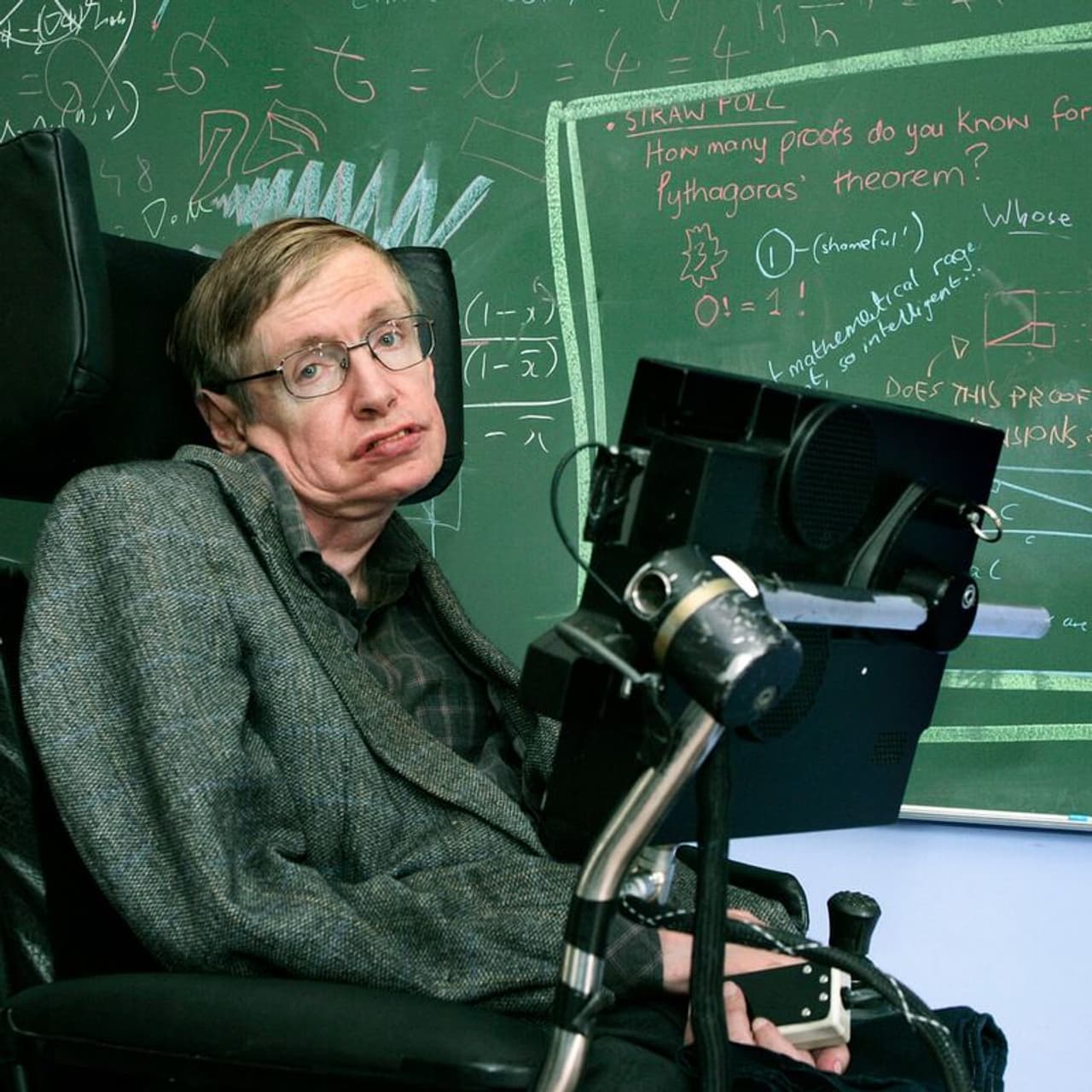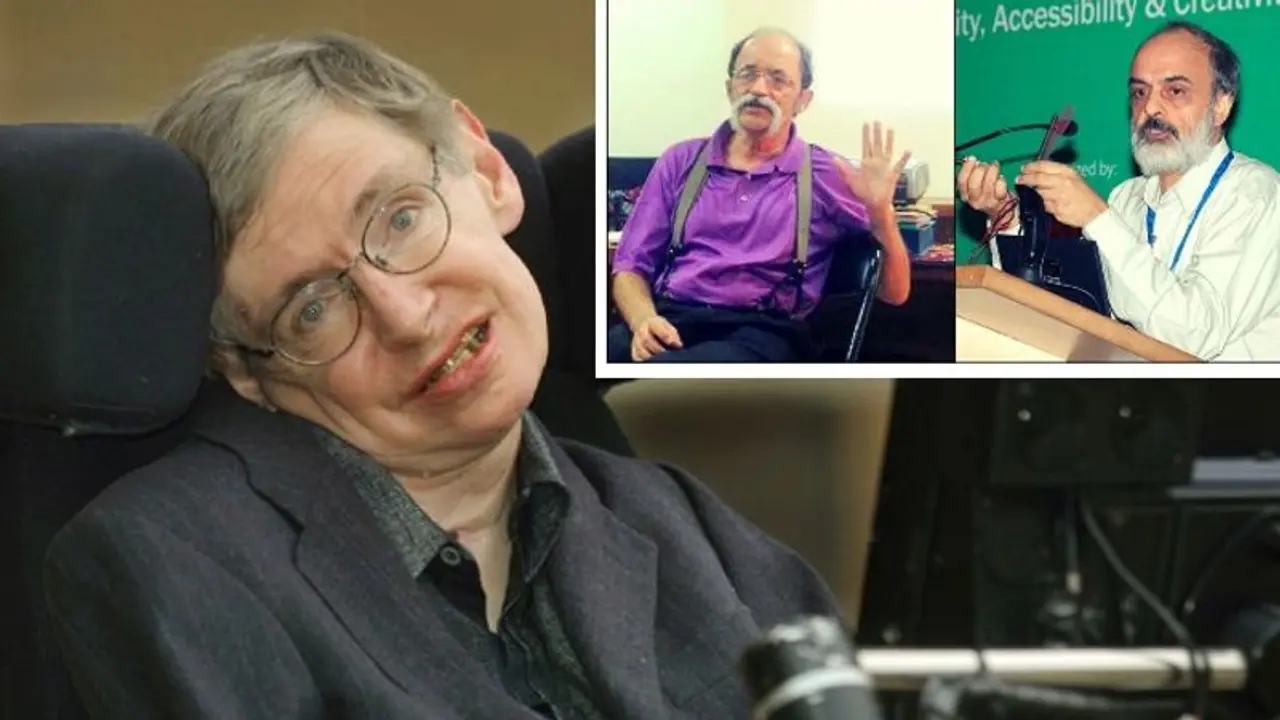Two Indian engineers, Arun Mehta and Vickram Crishna helped renowned cosmologist Stephen Hawking, who lost his voice in 1985 after a tracheotomy, talk again.
"However difficult life may seem, there is always something you can do and succeed at." – Stephen Hawking

Stephen Hawking, one of the most brilliant minds of our time, was a theoretical physicist and cosmologist. He was born in Oxford, England, in 1942 and had an insatiable curiosity and an unrelenting pursuit of scientific knowledge that marked his life. He overcame tremendous physical limitations to become a leading figure in the fields of physics and cosmology, making groundbreaking contributions that continue to influence scientific research and our understanding of the universe today.
Today, on Hawking's 5th death anniversary, we bring you a lesser-known story of how two Indian engineers - Arun Mehta and Vickram Crishna - helped the author of the best-selling book 'A Brief History of Time' talk again after losing his voice in 1985 following a tracheotomy.
In January 2001, Hawking arrived in India for the first time for a 16-day journey he would later describe as "magnificent". In Mumbai, where he began the first leg of the tour, Hawking attended a global physics seminar at the Tata Institute of Fundamental Research (TIFR), gave the Albert Einstein Memorial Lecture on "Predicting the Future: From Astrology to Black Holes," and celebrated his 59th birthday on January 8 at the Oberoi Towers hotel where he stayed.
After that, Hawking, who had been diagnosed with Lou Gehrig's disease, commonly known as ALS, when he was just 21 years old, travelled about Mumbai in a car specially modified to fit his wheelchair. During this time, Hawking's aides contacted various individuals and organisations to see if they could help build software enabling the renowned cosmologist to communicate through his computerised wheelchair.
Arun Mehta and Vickram Crishna, who met Hawking in Mumbai, decided to accept the challenge.
In an earlier video interview, Crishna described his encounter with Hawking and claimed that the eminent scientist did not seem intimidating. He noted that Hawking was a friendly, humorous man who enjoyed telling jokes and had a grave issue that required a serious solution.
After this encounter, Crishna was persuaded of the urgent need to create a better tech-human interface that would enable Hawking to communicate more efficiently. He started leveraging his technical training after being linked with Mehta, a passionate disability rights activist, software developer and instructor.
Their efforts paid off when they succeeded in developing software that met the writing and speaking requirements of patients with severe motor and speech difficulties. The programme is known as eLocutor, and it uses a prediction model to try to forecast what a user will type next while also learning from previous input.
Hence, eLocutor enabled Professor Hawking to speak and type with just one button! However, the talented team's work for those with impairments did not end with this fantastic accomplishment.

In an interview following Hawking's death, Mehta had said, "While developing that software we realised the importance of technology in the lives of people with disabilities, especially those who have a tough time communicating."
"So we started doing more work in this area, only to realise that working constantly in this field did not make commercial sense. It is something more suited for an NGO than for a software company," he added.
Arun and his partner Vickram Crishna established BAPSI (Bidirectional Access Promotion Society) in 2009 to make technology solutions accessible and affordable for those with limited access to information due to a disability or because the information is not presented in a user-friendly manner.
The BAPSI has developed several programmes to aid in the communication of deaf and blind persons, including SKID (an SMS app that reads text using vibrations similar to those used in Morse code), Narangi (a slate for blind and deaf kids, which once the sketcher traces their drawing, it vibrates), and PocketSMS (a web-based software programme for kids with cognitive disabilities).
As for Hawking, his work earned him numerous awards and honors, including the Presidential Medal of Freedom, the highest civilian honor in the United States. He also authored several popular science books, including "A Brief History of Time," which became a bestseller and brought the wonders of physics and cosmology to a broader audience.
Hawking passed away on March 14, 2018, but his legacy lives on in the scientific community and beyond. His work continues to inspire scientists and non-scientists alike, and his perseverance in the face of adversity serves as a powerful reminder of the human spirit's capacity for resilience and determination.
